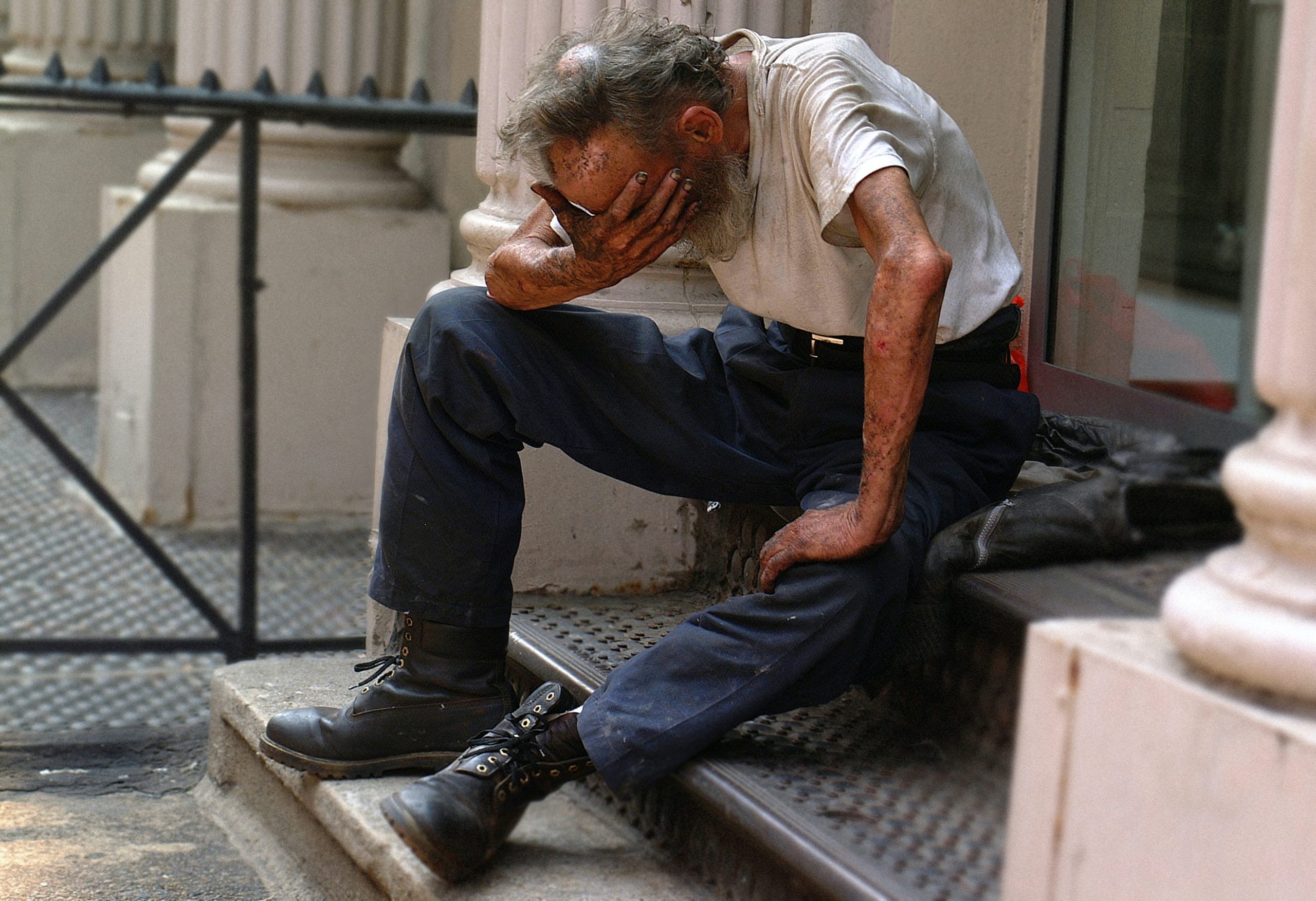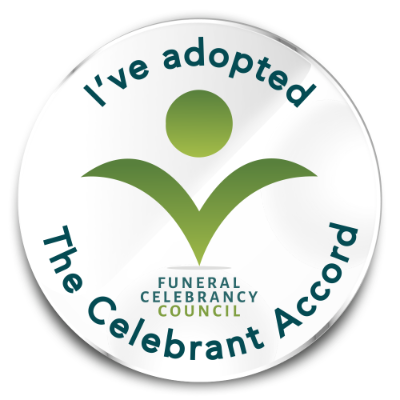A guide for people who worry what to say to a grieving person
A Guide For People Who Worry What To Say To A Grieving Person
When someone dies we often find ourselves feeling enormous empathy but afraid that we might say something to a bereaved person that could make things worse. We can feel so anxious that we might not even say anything at all. While some people feel they know how to support their friends and family, others may feel less sure.
Every grief is unique. It can be dependent on many different factors relating to the person who died, their relationship with the person who is grieving, the circumstances of what happened, the grieving person’s own history of loss, and other factors. Even if you think you have experienced something like their grief, in reality it is probably very different.

This simple guide is intended to help those who may feel anxious or unsure about what to say to someone when they are grieving.
When you don’t know what to say or feel like avoiding your friend, it’s okay to say that you don’t know what to say. You could tell them that you are incredibly sad about what has happened.
If you think that they are coping so well and you want to tell them so, consider this – your friend is trying so hard to hold it together, to not be a mess while they are with you. When you tell them how well they are doing they might feel that you don’t see how painful this is for them. Maybe try saying “I can only imagine how hard this is for you”.
You’ve probably heard that people will go through stages of grief. The truth is that most people don’t follow stages, and thinking that they should may leave your friend feeling like they are failing at grief. Instead listen when they talk about their feelings and don’t worry about trying to organise what they are going through into a tidy, linear package. Everybody’s grief is going to follow a unique path.

Even if you have been through a similar bereavement, every situation is so different. You don’t really know how your friend’s pain feels to them. You can say that you relate to what they are going through. You can hear their story, and honour what makes their person unique.

Many of us use euphemisms because it’s hard to say that someone has died. Using euphemisms might make you feel better but they can make the bereaved person feel worse, invalidated or even confused. No amount of not saying the words will make the person who died any less dead. Take your lead from your grieving friend and mirror the language they are using to describe their loss.
But surely there is some advice you can offer? Not really. Your friend doesn’t need your advice, they need your support. They need you to listen and to be there while they figure out what they feel they need to do. You could say; “when this happened to me I found that this helped.”
It is a healthy choice to take the time to grieve. A ‘keep calm and carry on’ approach can lead to repressing grief. Trying to ignore or hide feelings can mean that grief comes out ‘sideways’ in the form of irritation, tiredness, lack of faith, intolerance, isolation and even depression. When someone close to us dies we need to take time to process that this person is gone and to figure out who we are without that person physically present in our lives. Encourage your friend to trust themselves to know when they need to mourn and when they are ready to move forwards. Chances are that they will swing back and forth between the two.
No ‘light at the end of the tunnel’ can make the death of someone any less painful. Being told that there is a gift or an up-side, and that this is not just utterly shit, might be your way of making sense of things but to your bereaved friend it may suggest that their loss means less. Try not to offer an up-side but instead, accept that this loss is heart-breaking and there is nothing you can do to fix it.
There is no worse or better loss. There is only how this loss feels to the person who is suffering right now.
Your friend needs to grieve – to cry, weep, laugh. Bereaved people are still themselves but in overwhelming circumstances. They may laugh and smile, they also may sob, or even feel quite numb. It’s okay for them to be distracted from their grief for a while.
Grief can be a rollercoaster. Be the friend who can roll with it.

Mentioning or talking about the person who died wont upset your friend. They are already grieving all the time. It might be a huge relief not to have to hide that from you. See if you can just be with your friend and if they cry, let them cry.
Grief often makes people re-examine their world view and spiritual beliefs. Beliefs which help and support you wont necessarily help and support your friend. Do ask them what they believe, or what they would like to believe.

It is not a weakness to mourn a death. Let us not equate emotion with weakness. Strong people grieve, grown people cry. Shutting down expression of grief can lead to complicated or prolonged grieving. Reassure your friend that there is no need to apologise for their grief.
Someone has died and you can’t ‘fix it’. It might seem obvious, but many of us try to ‘make it better’. If you try to make it better it will just seem like you are minimising the impact of that person’s life and death. You don’t have to offer a solution, but a listening ear and your company are precious.
Time does not heal, not all by itself. Acknowledgment and mourning of this loss over time is how we get through grief. There’s no way around it. Grief has to be grieved! Give your friend all the time that you can to talk about what has happened and how they feel even if they’ve said it all before. Then take some time for yourself to breathe and refuel.
Let children see tears. Allow them to see what normal grief looks like so that they grow up knowing that it’s okay and healthy to show emotion when someone you love or care for dies or leaves.
Death is not a failure. We all die, sometime. As yet there is no possibility of immortality. While it is human to fear death, recognising that our lives are finite can help us to live more fully. Death is a rite of passage, a departure.

© Emma Curtis 2020
This guide is created by Emma Curtis – secular minister, grief and resilience counsellor – for Arrivals + Departures, an artwork by YARA + DAVINA https://www.arrivalsanddepartures.net/
In March I was asked by artists YARA + DAVINA to create a guide for the public program of their artwork ‘Arrivals + Departures’. This artwork should now be touring the UK after a month in London at Somerset House through April, but due to the coronavirus pandemic everything is on hold.
Together with YARA + DAVINA, I have decided to release this guide now, hoping that it will be helpful to the many people who are now finding their way through bereavement and supporting a grieving friend during lockdown in the UK, USA and around the world. I really hope that it helps, even just a little.

Emma Curtis is an award-winning secular minister, opera singer and grief and resilience counsellor, based in Surrey with a therapy practice in London’s West End. She is the founder of Ceremony Matters, offering advanced trainings, support and mentoring to funeral celebrants. Learn more about Emma here
About Us
Ceremony Matters offers advanced trainings, continuing professional development, support and mentoring to funeral celebrants across the UK. Celebrant Support is a professional support service in person, online or over the phone.
Get In Touch
text 07768 878764 for Celebrant Support
1:1 sessions:
Cavendish Square W1G 0PH
Myddelton Square, Islington EC1R 1YB
and online.
We Have Adopted The Accord. Emma is proud to have been a part of the development of the Funeral Celebrant Accord as a representative on the Funeral Celebrancy Council. She is the council’s representative of Independent Celebrants.




Hello Emma, thank you for writing this and for taking the time to record it to.
We met at the Southbank Centre a couple of years ago.
Hi Sandie, great to hear from you. I’m so glad that you like the Guide, and the video. You are welcome to share it 🙂
This is great Emma. Thank you.
The whole exhibition is timely.
It would be good to see it in health care settings when this (wave of?) pandemic has passed. It might help carers, health care professionals and every cleaner, porter and all who have been a part of supporting the sick and dying. as well as friends and families.
And babies are still being born whilst others die in these institutions so there are arrivals as well.
Dear Emma, Thank you for your beautiful and succinct words around grief. Hearing your words helps me in my work as funeral celebrant/minister and also as a spiritual counselor. I hear deep understanding and a spiritual listening to the grieving person from how you have described. thank you again.
much love Jenny xx